Sitra’s Megatrends 2020 list provides an overview of the issues we should focus on in the coming years. A megatrend is a general direction of development consisting of various phenomena and entailing widespread change. They are often considered to occur at the global level and the development is often believed to continue in the same direction.
In Sitra’s Megatrends 2020 update, we highlight five trends and the links and tensions between them:
- Ecological reconstruction is a matter of urgency
- Relational power is strengthening
- The population is ageing and becoming increasingly diverse
- The economy is seeking direction
- Technology is becoming embedded in everything
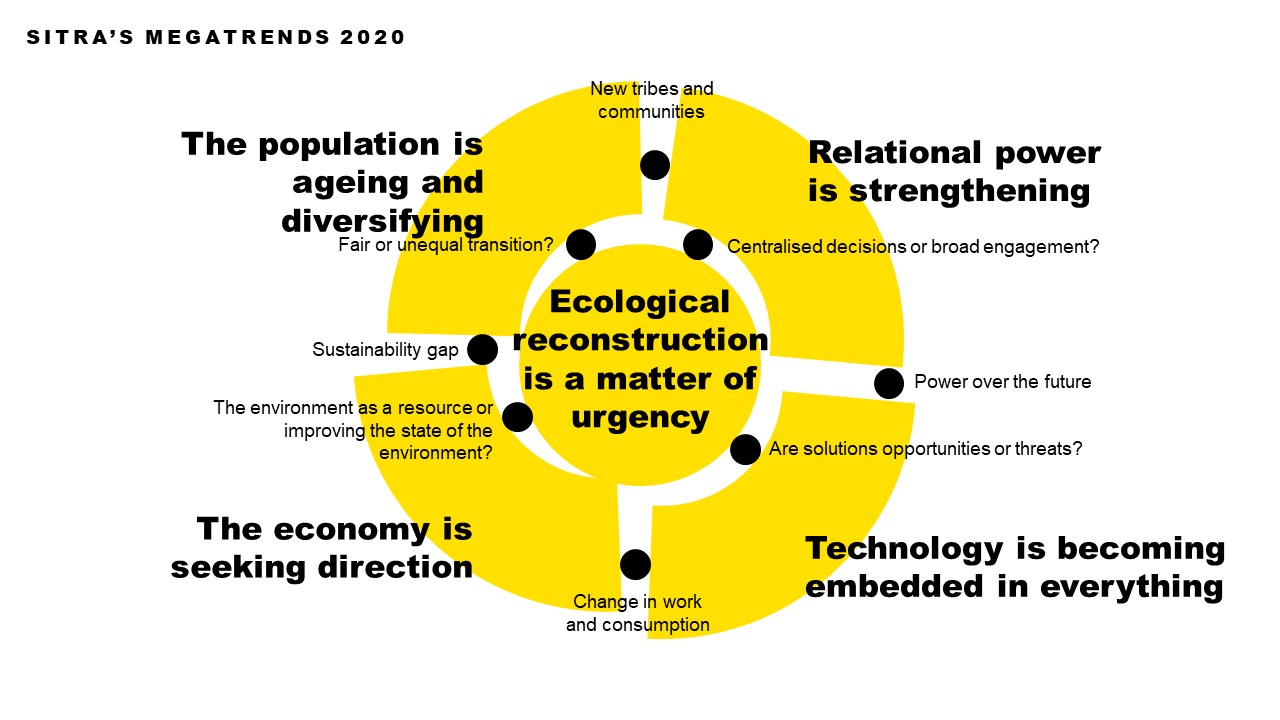
The key factor influencing our future is the urgent need for ecological reconstruction: how do we respond to climate change, decreasing biodiversity, the dwindling availability of resources and waste-related problems? Other trends should be viewed against this backdrop. For example, decisions should be made quickly – but are they made through centralisation of power of inclusive decision-making.
The second trend is the strengthening of relational power: power relations move from a multipolar world to a poly-nodal world. In a “poly-nodal” world power will be determined by relational influence and held not only by states but also by companies, regions and transnational organisations.
The third trend is the ageing and diversification of the population: the population is not only ageing but also becoming more diversified in terms of backgrounds, opportunities and habits. The question is: is ecological reconstruction carried out fairly or in a manner that increases inequality? The fourth trend, the redefinition of the economy, is also linked to this: is the environment only to be regarded as a resource or should the economy aim to improve the state of the environment?
Fifth, technology is embedded in everything: it is becoming a part of society and everyday life. For example, while technology offers new solutions for the production of energy it also simultaneously increases the demand for energy. This creates a conflict: to what extent does technology promote ecological reconstruction and to what extent does technology hinder it?
Understanding the big picture
“The start of a new decade is a good time to update our views of major long-term developments,” according to Katri Vataja, Director, Foresight, Insight and Strategy at Sitra.
“When it comes to issues of ecological sustainability, the term “crisis” is now widely used. While concerns over the state of democracy have been evident in discussions about the future for many years, there are now new nuances in the discussion as a result of the increase in new ways of wielding power, for example. Technological progress is no longer greeted exclusively with enthusiasm, and as technology becomes embedded in everything we do, we will need to deal with completely new questions.”
Rather than understanding a single megatrend, it is more crucial to understand the more extensive phenomenon to which it is related and the manner in which it is linked to other trends.
“The overview of social changes and tensions may seem challenging and even frightening. However, merely being able to identify these tensions suggests it is possibleto influence the future,” says Leading Foresight Specialist Mikko Dufva from Sitra.
Our future depends on today’s choices
Today’s decisions and actions will have an impact on the direction of development – will this direction be the same as before? Will development proceed in a new, previously unseen direction? Or will a state of tension remain?
There is a wide range of alternative futures available, some of which in many ways promise to make things better than at present. Our eventual future depends on our current choices and actions.
We can find new ways to strengthen democracy, make decisions quickly and reform our society, and at the same time, we can ensure that everyone is heard and the transition to a sustainable society is fair. A new kind of economic system may contribute to the improvement of the state of the environment and well-being in the long term, and technology may offer solutions, provided that it is managed appropriately.
“Hopefully, an increasing number of people will develop their future skills and improve their ability to imagine alternative futures, will take control of the future and will participate in the discussion about the future,” Dufva adds.
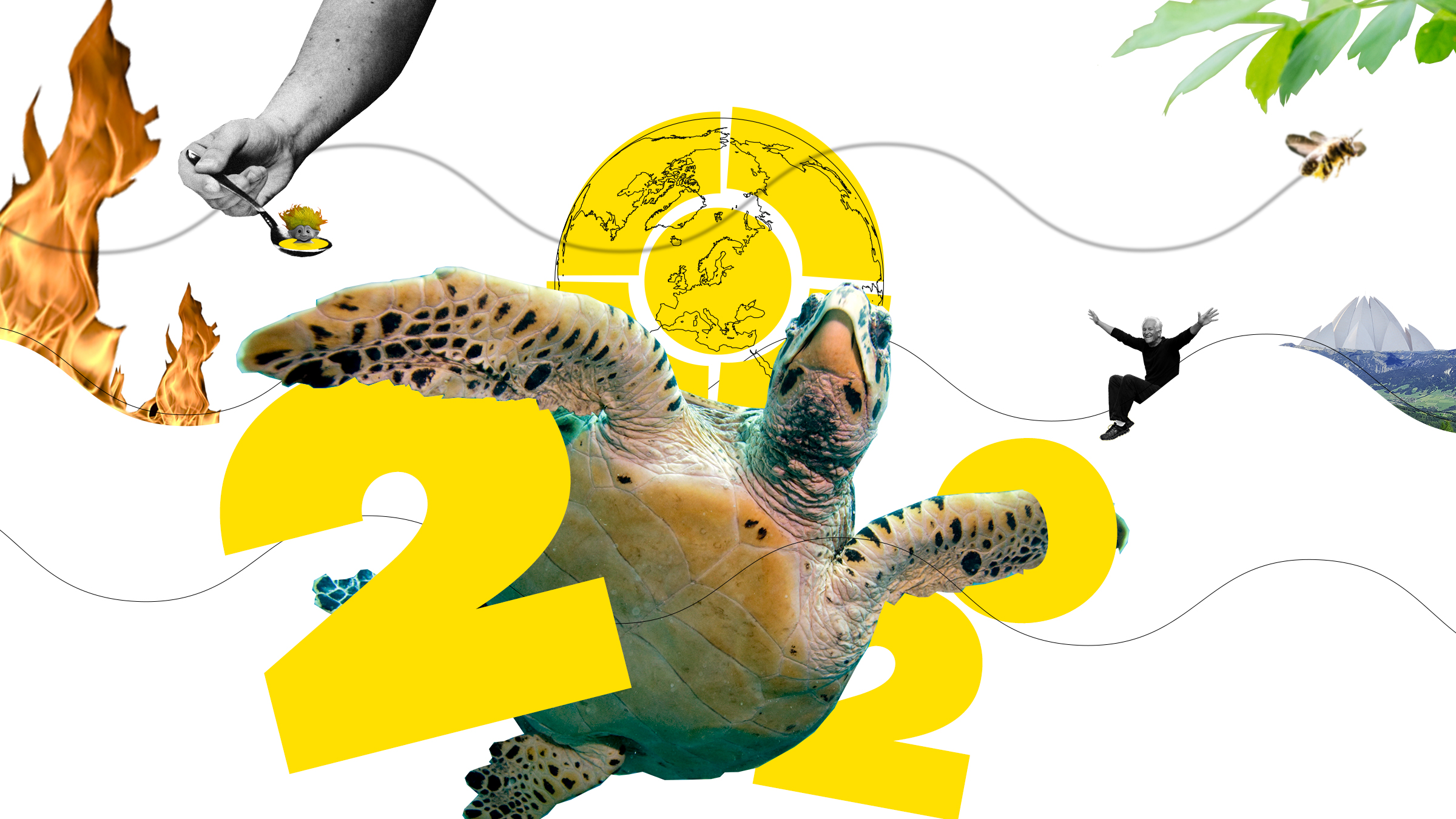



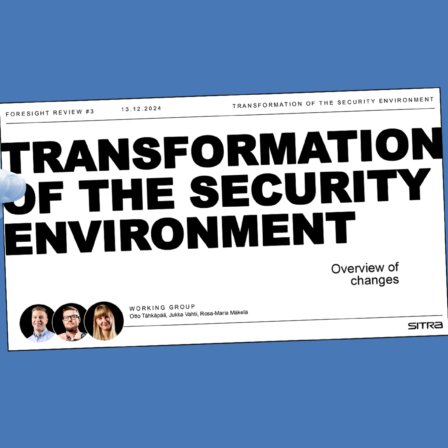



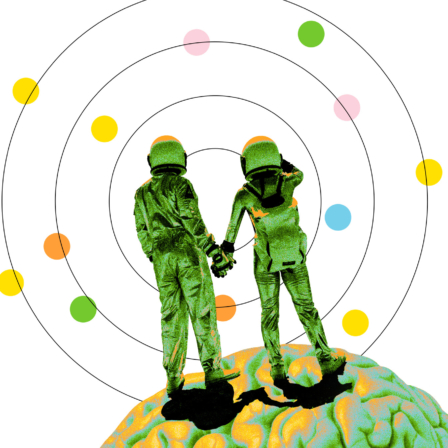








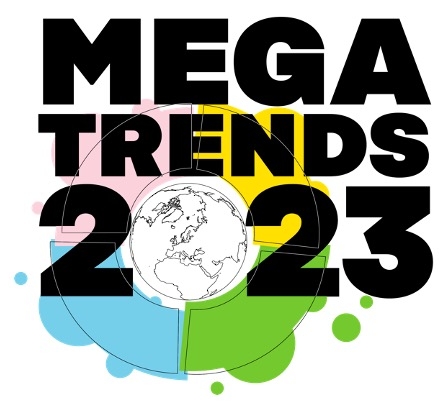
Recommended
Have some more.